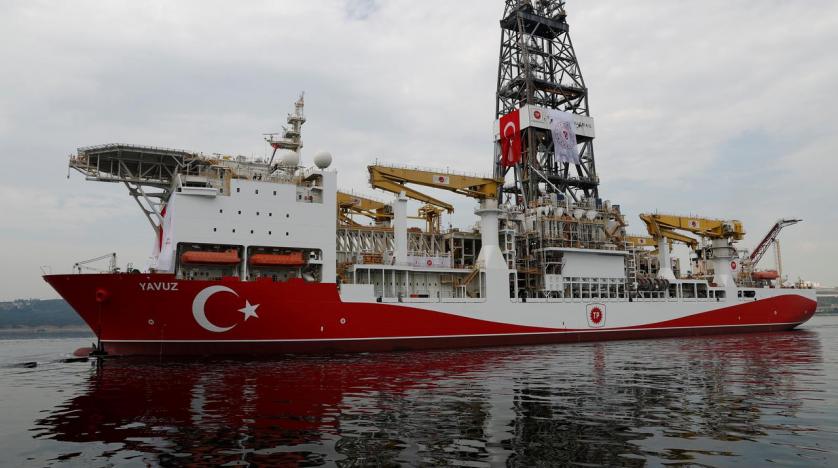Russia expressed its readiness to cooperate with Turkey in its oil and gas explorations in the eastern Mediterranean.
Russian Energy Minister Alexander Novak told Anadolu Agency (AA) that Russian companies are considering cooperating with Turkey if energy projects in the region are deemed commercially viable.
This is a sudden change in Moscow’s position, which has expressed concern about Turkey’s oil and gas activities off the coast of Cyprus, in an area Nicosia says falls within its exclusive economic zone (EEZ).
The exclusive interview, published Monday, was conducted ahead of 16th term meeting of the Turkey-Russia Joint Economic Commission last month in Antalya.
The drilling is fiercely opposed by Cyprus, the EU, Greece, Egypt, the United States and Israel.
In July, EU foreign ministers approved a set of “symbolic” sanctions in retaliation for Turkey’s exploration activities, including suspension of talks on an air transport agreement, a call for the European Investment Bank to review its lending to Ankara and a commitment not to hold further high-level dialogue between the EU and Turkey “for the time being”.
Moscow is opposed to restrictive measures against Ankara.
Russian Deputy Foreign Minister Alexander Grushko announced that unilateral sanctions are at odds both with international law and the procedures of the UN Security Council, adding that such measures, “lead to a radicalization of the positions” of opposing sides and “fail to achieve their goals.”
Moscow insists that the Security Council address the problem.
Russian Ambassador to Cyprus Stanislav Osadchy indicated that the Security Council’s permanent members, Russia, China, France, Great Britain and the US, could act as guarantors for a settlement.
Since May, Turkey has sent two drilling ships, the Fatih and Yavuz, along with a logistical support vessel off the Cypriot coast.
Ankara was planning to send a fourth ship to conduct seismic research for oil and gas around Cyprus, but it scrapped the move after the EU decisions.
Under the sanctions, European companies operating in the eastern Mediterranean must refrain from cooperating with Turkish vessels.
Meanwhile, Turkey’s Foreign Minister Mevlut Cavusoglu said on Monday that Ankara never ignores any solutions on Cyprus as it is a “national cause for us”.
“The equality and security of the Turkish Cypriot people are indispensable. On this basis, we do not exclude any solution,” Cavusoglu said in his keynote speech at the 11th Ambassadors’ Conference.
He added: “Our message to everyone interested in the [eastern Mediterranean] region is the same. If you cooperate with us, everyone wins.”
He stressed that Turkey backs a common solution in which the resources are equally shared.
Cyprus was divided in 1974 after a Turkish invasion triggered by a brief, Greek-inspired coup. Several peacemaking efforts have failed and the discovery of offshore resources in the eastern Mediterranean has complicated the negotiations.
Turkey, which has no diplomatic relations with Cyprus, is the only country which recognizes the breakaway state in the north of the island. Cyprus says Turkey’s drilling operations are contrary to international law and that decisions on hydrocarbons are its sovereign right.
Ankara says that Greek Cypriot authorities cannot make agreements about maritime economic zones or energy exploration on behalf of the whole island. It also says that the seas around Cyprus lie on its own continental shelf.
Source: Al Awsat



